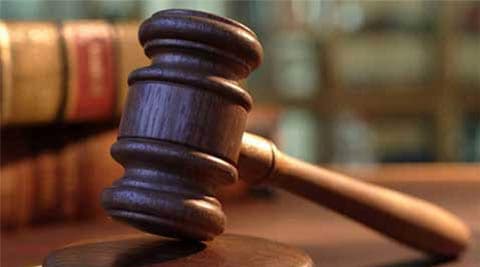
So three children between six and ten have moved the Supreme Court, no less, to direct the Centre and Delhi government to act on air pollution due to firecrackers. Would it be possible for the honourable court to tell them that as there is a backlog of 3.5 crore cases, they go to the back of the queue? The delay in civilian cases before judgement is often 20 years and in criminal cases 30 years. Thus they would get their judgement by the time they have children of their own of similar age.
Indians love litigation. You would not believe that in the first 5,000 years before the British introduced the legal system, Indians managed without rushing to courts at the slightest pretext. There would have been no need of the Mahabharata war had the Pandavas just gone to court to get their fair share of the ancestral land. They may not have got a decision in their lifetime had they the sort of delays we have today. Litigation is our basic human right. Courts get clogged with PILs.
Indeed, thanks to the British colonialists, we can claim to the world that India has a Rule of Law, unlike China. But there is a problem which comes with it. As the Prime Minister was told in California, delays in litigation even for commercial cases give India low marks. Income tax payers will tell you the terror of getting into dispute with the tax authorities. Tax terrorism is the only word for it.
This is not a secret. It is an open scandal in which successive governments have connived. All the three pillars of the State — Legislature, Executive and Judiciary — are culpable. The number of judges per million, at 10.7, is one of the worst in the civilised world, made worse by unfilled vacancies, more than a third of the slots. Judges are scarce and even then judiciary is as much of a family occupation as politics has become.
Would it be too much to ask that by 2027, on the 80th anniversary of Independence, India has a working justice system? Tackling the judicial crisis will take concerted effort by all the pillars of the government, but the Executive has to provide the resources and plan a sustained campaign over the next several years to reduce the problem to a manageable size. The number of judges needs to be quintupled at the very least and this can only be done in an ordered way, over time. It requires expansion of legal education, improving the incentives for taking on a job in the judiciary and also some way of reducing the incidence of frivolous litigation. We may even need to induct people who are educated but not lawyers and put them on a fast track to become judges .
To reduce the backlog requires a drastic measure. The justice system is a lottery except that it has infrequent draws. My solution is to ask everyone who has waited for five years or more whether they would accept a decision which will use the method of the lottery draw. Odd number means the defendant wins, even number the litigant wins. It may sound crazy but not as much as the system we have at present. This one is quicker.